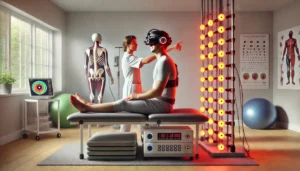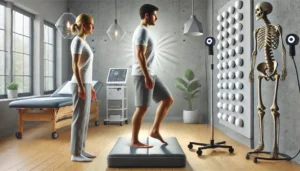
When everyday activities like walking, turning your head, or even standing still leave you dizzy or disoriented, it could be a sign of vestibular dysfunction. At Asara Physical Therapy & Balance Clinic, we understand how these symptoms can disrupt your life, and we’re here to help you find relief through specialized care.
Common Symptoms of Vestibular Dysfunction:
Vestibular dysfunction can cause a range of symptoms that interfere with daily life, including:
- Dizziness and vertigo: Feeling as though the room is spinning or you’re unsteady.
- Nausea and motion sensitivity: Discomfort during movement or while riding in vehicles.
- Blurred vision or gaze instability: Difficulty focusing, especially during movement.
- Headaches: Often associated with vestibular migraines or neck tension.
- Fatigue and brain fog: Feeling mentally drained or unfocused.
- Imbalance and falls: Difficulty walking steadily or maintaining posture.
Health Conditions That Can Impact the Vestibular System
Several conditions can affect the vestibular system, including:
- Inner ear infections (labyrinthitis or vestibular neuritis)
- Benign paroxysmal positional vertigo (BPPV)
- Meniere’s disease
- Vestibular migraines
- Concussions or traumatic brain injuries
- Cervicogenic dizziness (caused by neck dysfunction)
- Central vestibular disorders (such as stroke or multiple sclerosis)
How We Diagnose Vestibular Conditions
At Asara, we use advanced tools and methods to identify the underlying cause of your symptoms. A critical part of our diagnostic process is the use of infrared video goggles, which allow us to:
- Detect subtle forms of nystagmus (involuntary eye movements).
- Differentiate whether dizziness stems from the inner ear or the brain.
- Provide an accurate and detailed analysis of your vestibular function.
Our therapists also perform a thorough clinical evaluation, reviewing your medical history and conducting evidence-based objective tests for dizziness, gaze stability, balance, posture, and neck mobility.

A Personalized Approach to Vestibular Therapy
We recognize that no two patients are alike. That’s why we create personalized treatment plans tailored to your specific needs and health goals.
Our comprehensive approach may include:

Flash reaction training using Blaze pods
- Canalith Repositioning Maneuver: To reposition the crystals that are misaligned in BPPV. (Benign Paroxysmal Positional Vertigo).
- Gaze stability exercises: To help your eyes focus during movement.
- Dynamic balance training: To improve your ability to move and react in different environments.
- Postural strengthening: To enhance alignment and reduce tension.
- Neck mobility and strength exercises: To address cervicogenic dizziness.
- Visual-vestibular integration exercises: To reduce sensitivity to visual motion.
- Habituation exercises: To desensitize your body to movements that trigger symptoms.
- Functional training: To rebuild confidence and independence in daily activities.
Specialized Equipment for Recovery
At Asara, we go beyond traditional therapy by incorporating cutting-edge tools, such as:
- Infrared video goggles: For precise diagnostics and progress tracking.
- BlazePods: To enhance visual reaction times and coordination during rehabilitation.
Why Choose Asara Physical Therapy?
Our team is committed to providing compassionate care, blending advanced technology with evidence-based practices. We focus on empowering you to regain control of your life and achieve long-term results.
If dizziness, imbalance, or other vestibular symptoms are holding you back, let us help. Schedule a visit with Asara Physical Therapy & Balance Clinic today and take the first step toward recovery. Together, we’ll help you feel steady, confident, and ready to reclaim your health.

Comments are closed.